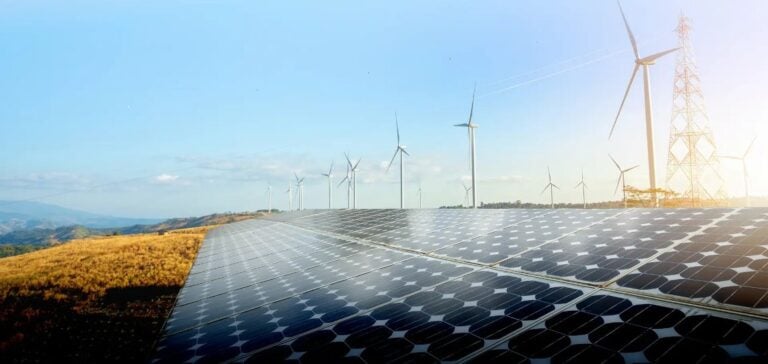Acme Solar Holdings Limited has announced the commissioning of four solar projects connected to the inter-state transmission system (ISTS) in Jaisalmer, Rajasthan. These projects total a capacity of 1,023 MW (1,483 MWp), reinforcing India’s ambitions in renewable energy transition.
The installations, located at a single site, constitute one of the largest solar projects of 2024. With an estimated annual production of 3,000 million units (MUs) of clean electricity, they contribute significantly to the national goal of reducing greenhouse gas (GHG) emissions.
Financing and regulatory framework
The projects were financed by the Power Finance Corporation (PFC) and the Rural Electrification Corporation (REC), two major public entities specializing in the energy sector. The electricity produced is sold to the Solar Energy Corporation of India (SECI) under a 25-year power purchase agreement (PPA) at a fixed tariff of Rs 2.44 per unit.
The regulatory framework supporting these projects reflects the central government’s commitment to encouraging private investment in the renewable energy sector. By guaranteeing competitive tariffs and robust partnerships, India positions itself as a global leader in deploying sustainable energy solutions.
Strategic benefits and optimized performance
The solar installations are located in a region with high solar irradiance, maximizing energy production. The use of shared infrastructure for power evacuation has enabled cost optimization and improved energy yields.
The project also represents a model of public-private partnership, demonstrating how collaboration between private investors and public institutions can accelerate the development of energy infrastructure.
Outlook for the renewable energy sector
This project aligns with broader efforts to expand solar capacity in India. With a total operational capacity of 2,540 MW (3,578 MWp), the company significantly contributes to the national target of 450 GW of renewable energy by 2030.
Future initiatives aim to strengthen solar and hybrid infrastructures while leveraging existing agreements with central authorities. Such investments in Rajasthan could serve as a blueprint for other regions looking to balance economic growth with sustainability.






















